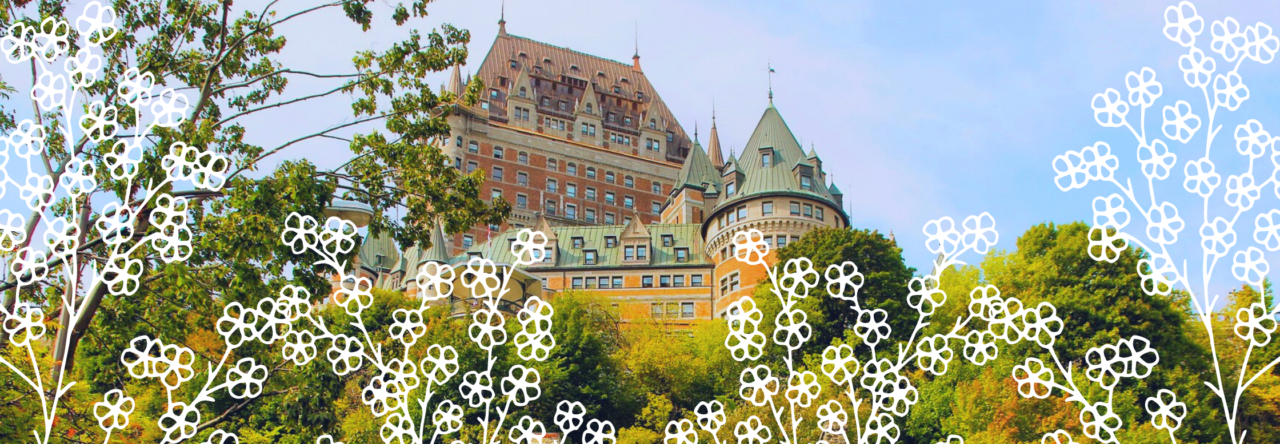Growing up in Manchester, New Hampshire, I was torn between two cultures, two languages and two worlds. Questioning what was happening to the north of me, in modern day Québec, my family’s motherland. Can Franco-Americans ever find peace within two cultures? What if I were the last Franco-American?
Rémi Francoeur, The Last Franco-American
Rémi Francoeur is a writer on a mission to reclaim the Franco-American story. Born and raised in Manchester, New Hampshire, he describes his life as living between French-Canadian and American culture.

Although Francoeur has been living in Montreal, Québec, he couldn’t help but notice how different he was as a Franco-American even when living among other Francophones.
He realized how many Franco-Americans never grew up speaking French, making him feel like the last person of the younger generations to speak the language.
He began to write his book about these experiences, calling it “The Last Franco-American.”
With this book as his ongoing passion project, he wants to bring more understanding and pride to Franco-American culture by sharing his own experiences and adding the experiences of other people who had to rediscover their own Franco-American heritage.
Francoeur has been working on his book for about three to four years, mostly due to going through the long and difficult translation process. He began by writing the book in French and translating it into English, which took him about 14 months.
“I mean, it kind of fits into the story. It’s the big irony that I had to rewrite it in English because my mother tongue wasn’t as good for me to write something like this,” he says.
As it’s well-known among Franco-Americans, one million of our ancestors left Québec to make their new life in New England during the early 20th century. When they settled into their new home, “Little Canada” neighborhoods popped up throughout the area. French was widely spoken and many were too stubborn to give it up and speak English.

However, as we in New England are aware of, many Franco-Americans eventually gave in. Rather than speak French along with English, they ditched French altogether.
But some families retained the language and passed it down. Francoeur grew up speaking French as his first language and learned English during preschool. This gave him an advantage of connecting to two completely different languages and culture.
“English became my dominant language, because I was being educated in English,” he says. “But in the house, at relative’s homes, and many of my friend’s parents, they spoke French.”
Francoeur’s family moved from Québec to New Hampshire in the mid 1960s. He describes his family as the working-class French. So even though there were Franco-Americans who had already been Americanized, his family was still relatively new on the scene and continued speaking French as they learned English.
Backtracking his family’s footsteps, Francoeur took up residence in Montreal. Although he can communicate well with other Francophones around him, he began to realize that he still stuck out to the Francophones born and raised in Québec.
“I had realized after moving to Montreal that everybody was incredibly perplexed and astounded that I spoke French and then they wondered why, and how I grew up. I would get similar questions from many people every time I was introduced to people,” he says.
From there, Francoeur began doing research about Québécois, French-Canadians, and Franco-Americans. He also talked to his friends in Manchester about what he was finding and realized that they didn’t know much about their own Franco-American background.
Francoeur then started his own mission to reclaim this story, not just for his fellow Franco-Americans but also for French-Canadians and Québécois.
“For me, it was something that needed to be filled and I figured that both sides of the border would learn about each other.”
His overall approach to the book is to give a global perspective of the Franco-American story, while also expressing the experiences of living in a culture that has faded over time.
In Francoeur’s words, the book will show “what it’s like to live and get a taste of what I think barely even exists anymore.”
Francoeur hopes that “The Last Franco-American” can be a resource for all Franco-Americans, whether Francophone or Anglophone, to rediscover their heritage for the present day.
Do you want the special edition version of this story, including more quotes from Rémi Francoeur?
Go to My French-Canadian Family for the full article!

Currently, Rémi Francoeur is looking for a publishing house. If you are interested in “The Last Franco-American” and can assist the author in publishing, you can follow up with him on his blog.

Sonya Lee
I grew up with Remi since kindergarten lol 😆 I also have a family side from Canada and yes with the big wave in the 50s and 60s they came this way and settled in Massachusetts and then moved to New Hampshire, my grandmother on my dads side would speak French Canadian in NH , and my great grand parents in Mass would speak a different tongue of French Canadian and came from Nova Scotia. Long story short, life long friends with similar backgrounds, I only knew what they were saying but was not fluent in the out word speaking of the language.
Gilbert C. Girard
Like Remi I was brought up speaking French and when I started school which was bi-lingual learned English. I now live away from New England and have met Europeans who do speak French here in Pennsylvania. A fact is that one of my next door neighbor is Parisian but do not get together very often to chat.
Jean-Claude Pelletier
Very interesting story. I know a lot of francophones in similar situations still living in the New England area and elsewhere in the States. I live close to Northern Maine where many Franco- Americans still speak French but it’s sadly the last generation to speak it.
Nancy Normand
Thank you Remi! I still can speak Frenvch, of course!